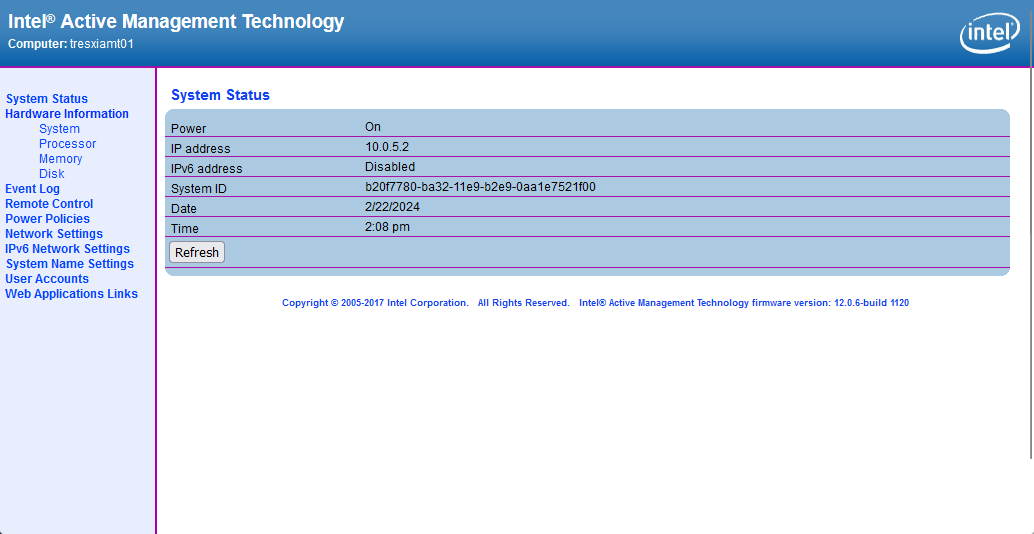Windows Server OSes running CrowdStrike affected too
- 0 Posts
- 10 Comments
- nightrunner@lemmy.worldtolinuxmemes@lemmy.world•IT outage: banks, airlines and media hit by issues linked to Windows PCsEnglish11·4 months ago
- nightrunner@lemmy.worldtoOpen Source@lemmy.ml•Interesting OSS project: Holesail creates instant P2P tunnels between networks (like a VPN)English5·5 months ago
This VPN protocol usually uses a private key (client) / public key (server) combo that is used to connect through a public IP address (the 2 nodes can’t communicate it without) using the specified TCP or UDP (more often lately) and port to create the VPN tunnel that’s gets established during the handshakes.
There is a whole lot more going on with the process but that’s a high level view. But I have a WireGuard VPN service running on a raspberry pi that I put in a DMZ on my perimeter firewall.
But a port scanner would be able to see that port is open. Make sure you keep your software up to date. Hopefully the software devs of the VPN application is keeping their stuff up to date to avoid any vulnerabilities getting exposed in the code and a backdoor getting created because of it. As long as that doesn’t become an issue, no one will be able to get through without the private key. And those are usually uncrackable in a lifetime with the complexity and length of the key.
- nightrunner@lemmy.worldtoTechnology@lemmy.ml•New Windows driver blocks software from changing default web browserEnglish4·7 months ago
We do: Firefox, Chrome, or Edge. That’s not the problem.
The problem is with Microsofts new driver we can’t allow users to set the default browser in their VMware Instant Clone using SetUserFTA via Dynamic Environment Manager.
- nightrunner@lemmy.worldtoTechnology@lemmy.ml•New Windows driver blocks software from changing default web browserEnglish5·7 months ago
We have 80,000 people that work for my company. That’s not going to happen. Now we have 10,000 VMs running a combination of Ubuntu, Red Hat, Debian, and Centos. But our employees choose the OS they want to run on their own work devices whether it be Linux, MacOS, or Windows and no way is everyone is going to Linux, even if that is my own OS of choice. Especially the C-Level and board member types.
- nightrunner@lemmy.worldtoTechnology@lemmy.ml•New Windows driver blocks software from changing default web browserEnglish2·7 months ago
We are using Instant Clones. It’s a non-persistent Virtual Desktop.
We want to give our users the choice and then be able to persist those choices. Not force them to use just one option with a GPO that defines what they have to use.
SetUserFTA and Dynamic Environment Manager allowed it until the last Windows CU came along…
- nightrunner@lemmy.worldtoTechnology@lemmy.ml•New Windows driver blocks software from changing default web browserEnglish541·7 months ago
This is horrible. I run several different environments of VMware Instant Clone VDIs and use the SetUserFTA to help a users default browser and other file extension defaults to persist for a user from session to session on a non-persistent VDI. Now it’s broken.
Thanks a lot Microsoft. 😤
- nightrunner@lemmy.worldtoSelfhosted@lemmy.world•How to remotely reboot a Linux host if SSH fails to connect?English1·9 months ago
Ok, I grabbed a few screen shots for you as well. Here is a site that will link you to MEBx setup that enables AMT: http://h10032.www1.hp.com/ctg/Manual/c03883429
When power on your ProDesk G3, you can access the MEBx setup by pressing Ctrl+P or they also say F6 or Escape will get you there. Intel AMT runs on a different IP address than what your OS gets. You can assign DHCP or a static IP address and setup your admin password. You can then access the portal from http://ipaddress:16992 There should be a method of access what would show on the screen through a KVM like access but I use MeshCentral for that so I couldn’t tell you how to do it without.
Hopefully, that gives you a start. Feel free to reach back out if you have any questions. Thank you!


I couldn’t see it the wrong way at all until I really stared at it. Then once I saw it, I couldn’t unsee it. lol
- nightrunner@lemmy.worldtoFirefox@lemmy.ml•How can I ask ChatGPT questions from the URL Bar?English131·11 months ago
Unfortunately, the coding that the site uses to post your questions and return data back to you does not function in that matter. If you want to interact with the Large Language model without using you web browser, you would need to so by using other software or applications to hit their API (you do have to pay for this service) and then return the data back to you. So it is possible, but not in the manner that you are suggesting.
On a side note, I signed up for a 3 month trial of access to hit their API using a session code and a post shortcut on my iPhone. I created a iOS shortcut that allowed me to use OpenAI as a replacement for Siri. It was a fun little project.
No it has not. Validated on Ubuntu 16.04, 18.04, 20.04, 22.04 running CrowdStrike Sensor